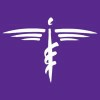Rows of olive trees in rust-colored earth and skinny kids leading flocks of sheep rushed past my window on the roadside and then faded from view. I was on a minibus traveling from a city named Gaziantep in Türkiye, heading toward the Syrian border with 14 other doctors and nurses. [In 2023, the U.S. State Department began spelling Turkey as “Türkiye” in diplomatic and formal settings following a request by the Turkish embassy.]
The most frequent question people asked me before the trip was, “Are you worried about safety?” It was a legitimate query given the sound bites about Syria I’ve heard over the years. Bassam, our Syrian security officer, and his team kept us feeling safe the entire trip. No doubt I was clueless about some potential dangers, but I honestly have felt less safe working in an inner-city emergency room in Salt Lake City than I did in Syria.
Our trip in April focused on point-of-care ultrasound training, complex laparoscopic surgery, basic life support and wound care training, mobile clinic care in camps for internally displaced persons, mental health training and media outreach. With two doctors from Canada and Qatar, I did ultrasound teaching to ICU fellows and various specialty attendings. The physicians we taught were intelligent, teachable and enthusiastic.

One evening I noticed two men and a boy about 8 years old sitting on a bench. “As-salamu alaykum,” I said with my right hand over my heart. We did the traditional greeting between two men: kiss on the right cheek, kiss on the left cheek, then kiss on the left shoulder. I’m a touchy-feely guy, so when I first saw this beautiful salutation, I asked a Syrian team member to teach me and then embraced it for the rest of the trip.
We said goodbye, and I got in the van. Suddenly, Ahmed, the boy, ran up to my door and knocked. Is he going to ask for money? That had happened in a different city. I opened the door, and he stepped up and kissed me on my right cheek. It was an absolutely guileless and profound moment.
For two days we worked in the Idlib Surgical Hospital. A 12-year-old boy was brought in with oxygen saturations in the low- to mid-80s. He couldn’t have his congenital cardiac defect repaired because Türkiye, where many cancer and complex pediatric cases were referred, shut its borders after a 7.8 earthquake shook its border with Syria, killing more than 55,000 people. A cancer diagnosis in northwest Syria is currently a death sentence, because patients can’t travel to Türkiye for chemotherapy or radiation.

Each team’s role in this mission was a direct result of what the Idlib Health Directorate had requested. MedGlobal had asked, “What do you need?” and then focused the entire mission on those needs. I’m astounded at the resiliency of the Idlib Health Directorate, who are confronting every imaginable public health concern with extremely modest resources.
Witnessing suffering combined with receiving love and gratitude from Syrian patients formed a poignant emotional rollercoaster. On my way out of Syria and for about a month following the trip, I felt sort of dazed. Did I really go to Syria? What just happened? “How was Syria?” my coworkers and family would ask. I stumbled over words. It’s like trying to sum up med school to someone on an elevator ride. There’s just no way to do it justice. My life is forever changed because I went.
Kendall Thurman, D.O.’06, invites alumni who want to make a difference through global medical service to contact him at thurman@medglobal.org or visit medglobal.org.
